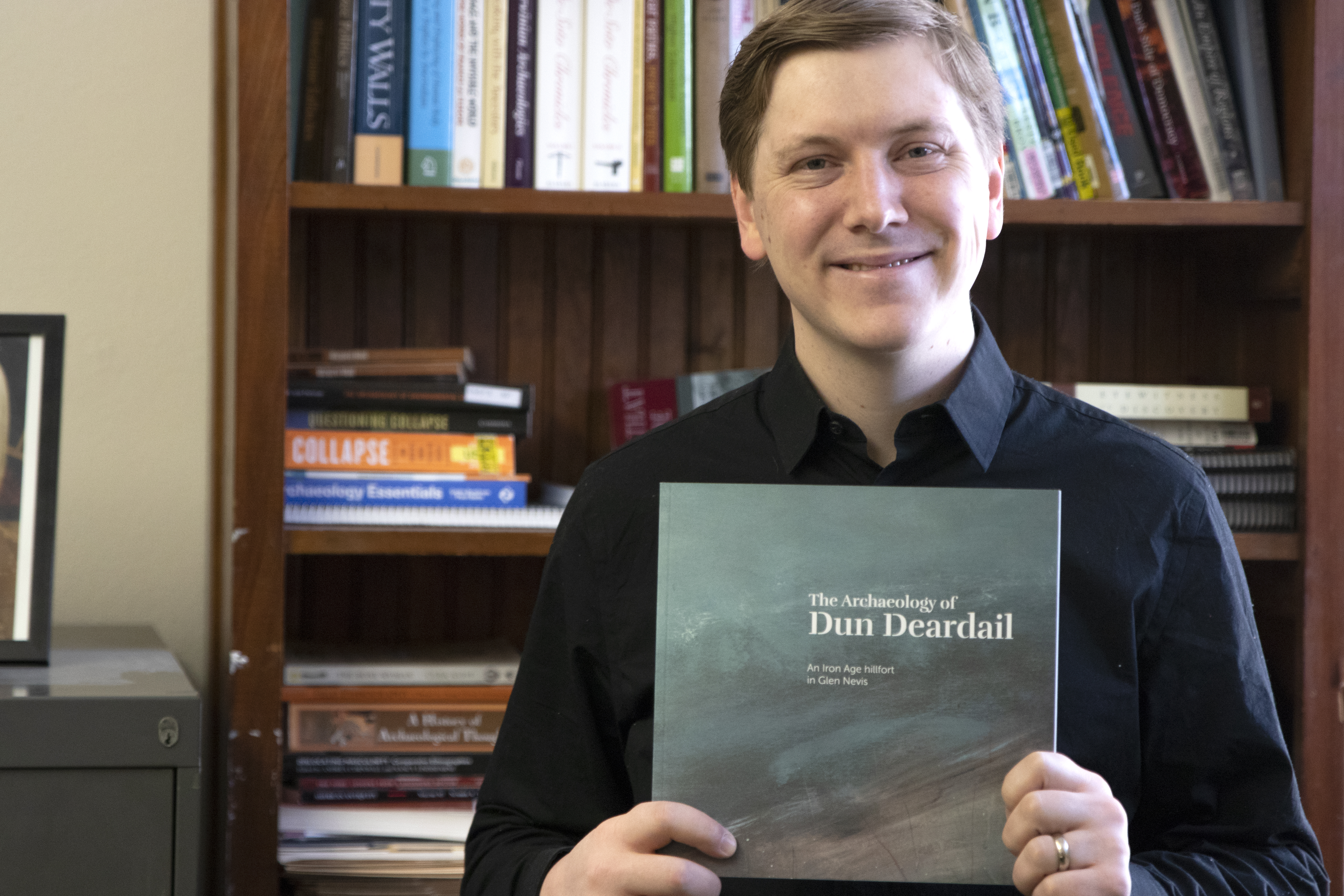
New USD professor contributes to award winning book
One USD professor contributed to an award-winning book before officially beginning his career as an archaeology and sociology professor.
“The Archeology of Dun Deardail” is a book that USD professor Tony Krus contributed to while working in Scotland. The book was awarded one of the three best archeology books of 2018, according to the British Archeology Awards.
The book focuses on the site of Dun Deardail, which was a fort during the Iron Age in Scotland. Krus said the team wanted to use modern techniques to gain an understanding of the fort.
“They were wanting to use the latest archeological excavation methods to see if they could obtain a better understanding of why this fort built, how was it used by people in the iron age…and when vitrification occurred,” Krus said.
Vitrification occurs when something is burned in an “extraordinarily” high heat, and in this case, the heat caused the stones of the fort to warp.
For his research, Krus would go to the site of the fort and pick certain samples to the radiocarbon date in his lab. With those results, he made statistical models to best guess when the site was founded, abandoned and set aflame.
Krus’s model said that the fort was burned down close to when it was abandoned.
“I would argue that the most likely scenario is that the village was ritually burned at the end of its use and I don’t think there was a century lag,” Krus said. “This was a very intentional high heat destruction.”
Krus said he was glad his colleagues on the project were awarded for their work on Dun Deardail.
“I was just so happy that it was getting recognition and the people involved were getting what they deserved after working so hard on the Dun Deardail project for the past four years,” Krus said.
Golden Age
Even though it’s less likely that new sites are being discovered, Krus said now is the golden age of archeology because of the new technology that lets us know more about ancient sites.
“There’s all sorts of exciting discoveries being made in archeology, not because someone is discovering something but because of stuff like I was doing,” Krus said.
Technological advances are allowing more information to be obtained from archeological finds from years ago, which gives more data for archeologists to interpret.
Krus said archeology is important because it shows the reality of the past.
“It shows that the past isn’t some made-up fairy tale that can be used for some political purpose,” Krus said.
USD connections
Krus recently signed a contract that will make him a tenure track professor next academic year, and he hopes to start a field school around the Vermillion area for USD students.
John Dudley, Interim Chair of Anthropology & Sociology, said in recent years USD students have traveled to Peru for this kind of experience, but having it near Vermillion would allow more students to participate.
“What we haven’t had in a while is a field school in the area which would obviously have a lot of advantages for students,” Dudley said.
Krus is also working on organizing the archeology lab located in the basement of East Hall. Next year, he plans on buying new equipment available to students for their research.
Dudley said it’ll be “great for students to have the opportunity for students to work with state of the art” technology in the classrooms, especially when USD has the only archeology program in the state.
“USD is unique in the state for offering a degree in anthropology and the archeology lab we have is pretty unique within the state, that we’re the one place that trains archeologists,” Dudley said.

